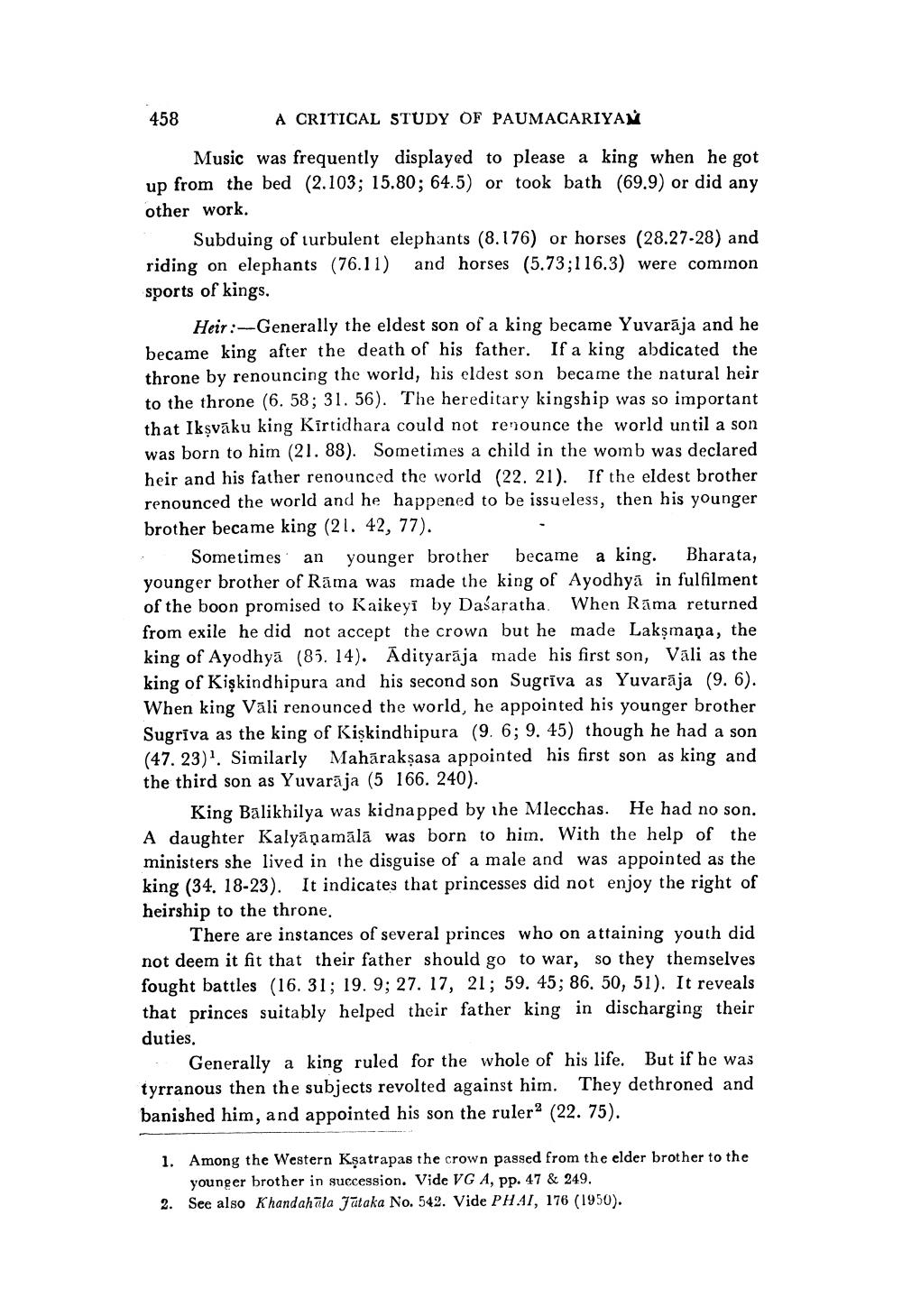________________
458
A CRITICAL STUDY OF PAUMACARIYAN
Music was frequently displayed to please a king when he got up from the bed (2.103; 15.80; 64.5) or took bath (69.9) or did any other work.
Subduing of turbulent elephants (8.176) or horses (28.27-28) and riding on elephants (76.11) and horses (5.73;116.3) were common sports of kings.
Heir: --Generally the eldest son of a king became Yuvarāja and he became king after the death of his father. If a king abdicated the throne by renouncing the world, his eldest son became the natural heir to the throne (6.58; 31. 56). The hereditary kingship was so important that Ikşvāku king Kirtidhara could not renounce the world until a son was born to him (21. 88). Sometimes a child in the womb was declared heir and his father renounced the world (22. 21). If the eldest brother renounced the world and he happened to be issueless, then his younger brother became king (21. 42, 77).
Sometimes an younger brother became a king. Bharata, younger brother of Rāma was made the king of Ayodhya in fulfilment of the boon promised to Kaikeyi by Dasaratha. When Rāma returned from exile he did not accept the crown but he made Lakşmaņa, the king of Ayodhyā (85. 14). Adityarāja made his first son, Vāli as the king of Kiskindhipura and his second son Sugrīva as Yuvarāja (9. 6). When king Vāli renounced the world, he appointed his younger brother Sugriva as the king of Kiskindhipura (9. 6; 9. 45) though he had a son (47.23)?. Similarly Mahāraksasa appointed his first son as king and the third son as Yuvarāja (5 166. 240).
King Balikhilya was kidnapped by the Mlecchas. He had no son. A daughter Kalyāṇamālā was born to him. With the help of the ministers she lived in the disguise of a male and was appointed as the king (34. 18-23). It indicates that princesses did not enjoy the right of heirship to the throne.
There are instances of several princes who on attaining youth did not deem it fit that their father should go to war, so they themselves fought battles (16. 31; 19. 9; 27. 17, 21; 59. 45; 86. 50, 51). It reveals that princes suitably helped their father king in discharging their duties.
Generally a king ruled for the whole of his life. But if he was tyrranous then the subjects revolted against him. They dethroned and banished him, and appointed his son the ruler2 (22. 75).
1. Among the Western Kşatrapas the crown passed from the elder brother to the
younger brother in succession. Vide VG A, pp. 47 & 249. 2. See also Khandahāla Jataka No. 542. Vide PHAI, 176 (1950).




